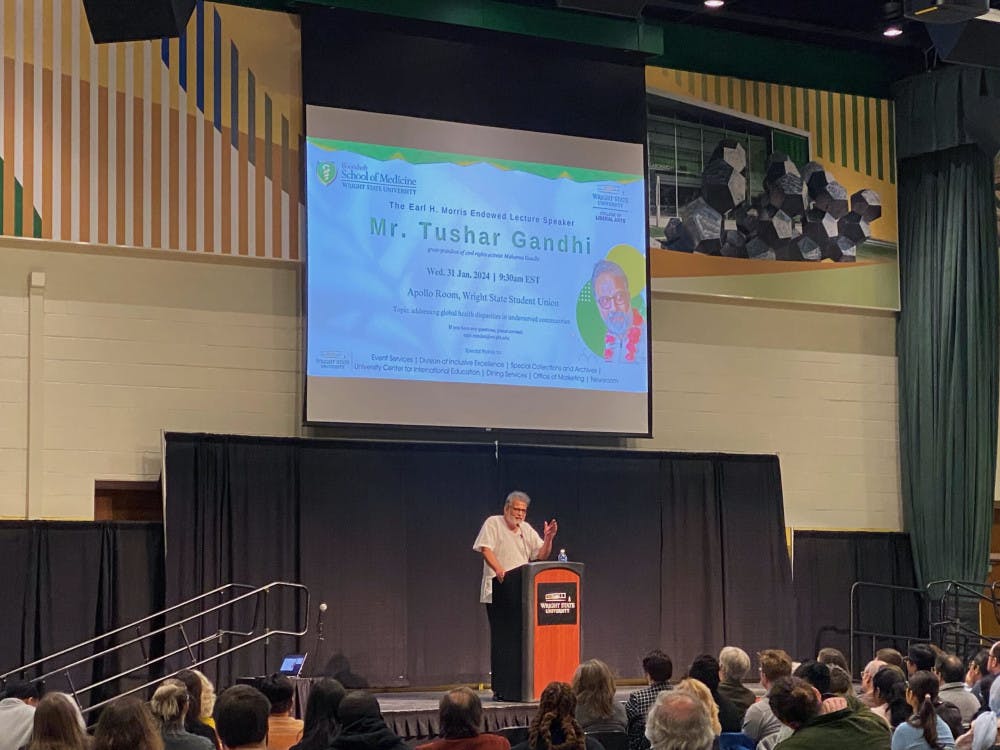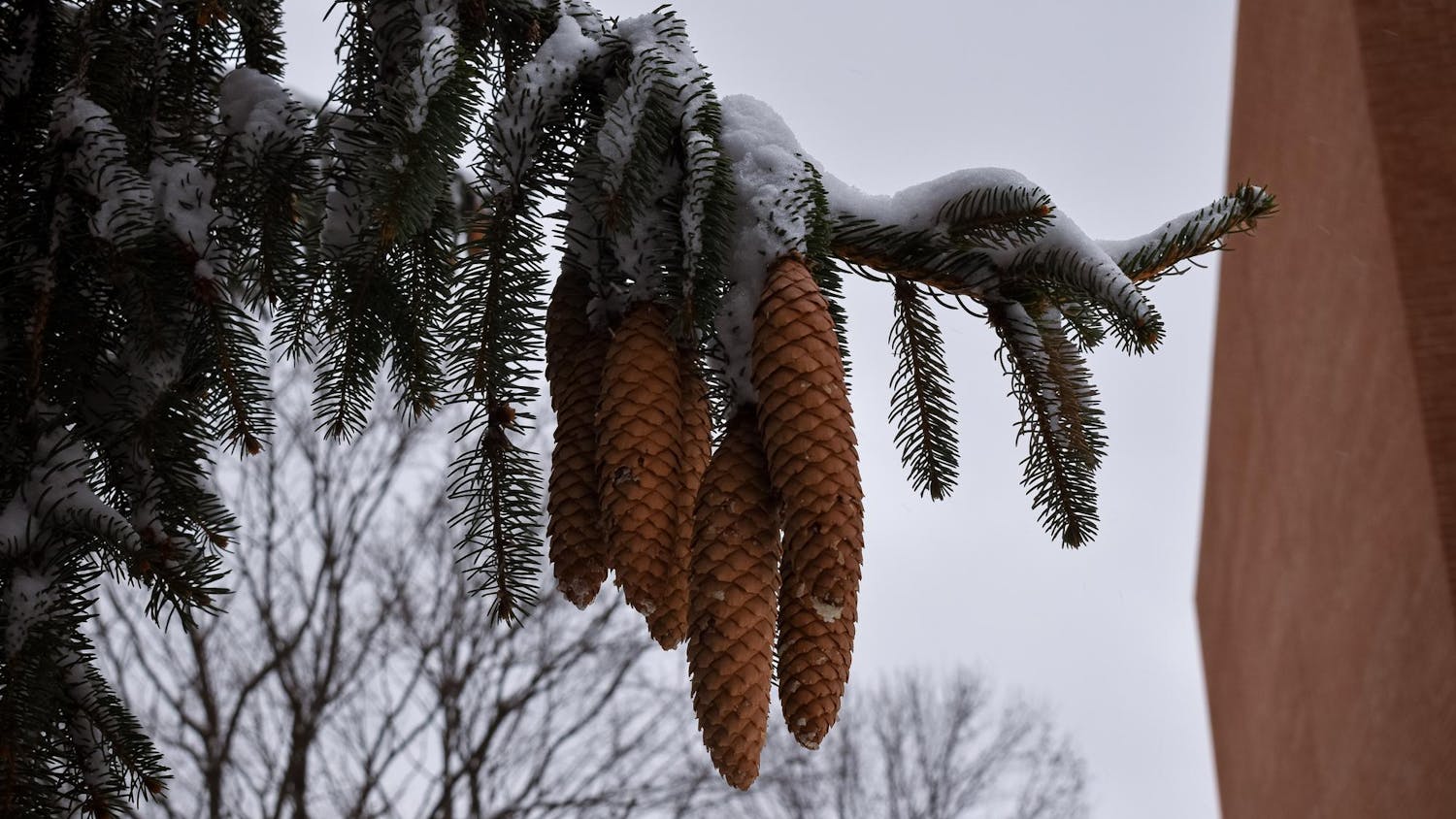Tushar Gandhi | Photo by Abigail Abbott | The Wright State Guardian
On Jan. 31, the Wright State University community filled the Apollo Room to listen to Tushar Gandhi speak about healthcare disparities in minority communities in India and around the world.
Background
Tushar Gandhi is the great-grandson of Mahatma Gandhi, a world-renowned leader famous for his non-violent movement against Great Britain in 1947, leading to India's independence. Tushar Gandhi also leads the Mahatma Gandhi Foundation.
Terry Oroszi, who was hosting Gandhi’s visit, is an associate professor and vice chair of the Department of Pharmacology and Toxicology.
“Tushar is dedicated to promoting equality for all. This mission aligns with Wright State’s goal of providing accessible education to everyone. These two important goals go hand-in-hand,” Oroszi said in a press release from Wright State.
Event

In the seminar, Gandhi explained the past of medical health among the people of India when it was very tough to get quality medication or treatment as well as the current situation today because of advanced technology.
Gandhi also mentioned the world has developed a lot, but there are still so many unprivileged people without the benefits of modern health technology because of a lack of health insurance.
According to Forbes, nearly 400 million individuals in India have no access to health insurance.
“My great-grandfather Mahatma Gandhi actually wanted to be a doctor and serve the community. He got every training in the medical line so that he can be an assistant of a doctor and can help the people,” Tushar Gandhi said. “During the war against the British, he used to help the injured British soldiers too instead of differentiating the soldiers, and it shows how he was devoted to help humanity, not only for the Indian people.”
Tushar Gandhi talked about poverty in India, an issue which results in malnutrition as well as little access to proper medical care.
Malnutrition is the primary cause of 1.83 million Indian children's deaths before they turn five years old, according to a 2012 report by the British nonprofit Save the Children.
“The main problem of the health system is that it is designed for the rich people. If you have money, you will get the best treatment, but if you are poor, there is no better healthcare, and it does not matter in which part of the world you are in,” Professor and Inclusion Officer of the Raj Soin College of Business Dr. Wakiuru Wamwara said.
Tushar Gandhi also said that snake bites are one of the highest causes of death in India, as only the government clinics have access to the anti-venom. As those incidents happen in rural areas most of the time, it becomes very difficult for the victims to reach the nearest government clinic or hospital where they could get the treatment.
According to the World Health Organization, more than one million people have died in India over the past two decades because of snake bites.
Final opinions
One of the audience members asked Tushar Gandhi how we can overcome these obstacles and help improve access to quality health care.
Tushar Gandhi explained that he is working with his organization to help students that dropout of school due to poverty; by providing these students with education, they are able to overcome obstacles and reach success.
“There are so many organizations [and] communities who are working to help people. We can find them and cooperate with them to spread the good works,” Tushar Gandhi said.












